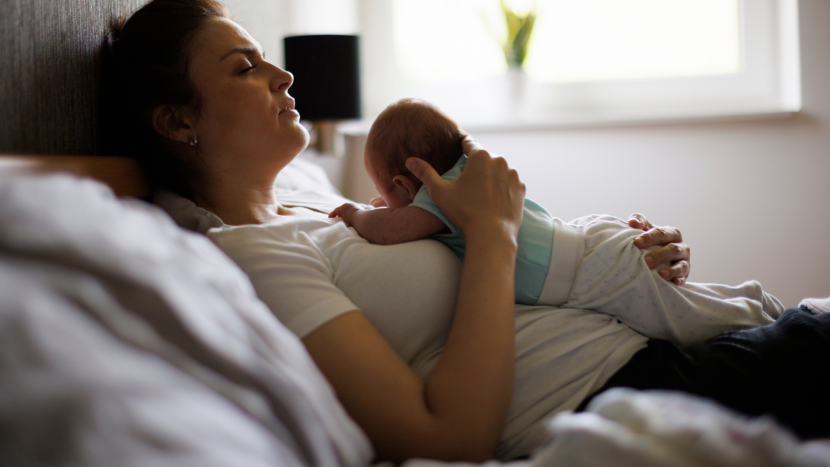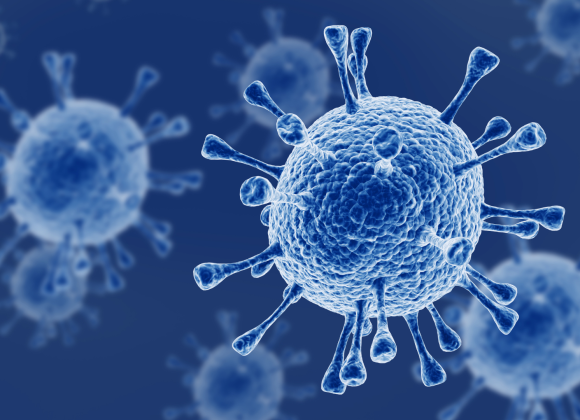What are postpartum blues?
Postpartum blues, or “baby blues,” is an emotional condition that generally affects many new mothers in the days and weeks after they give birth. It is marked by mild mood changes, such as sadness, irritability, anxiety, and emotional vulnerability. These symptoms generally develop the first 2 to 3 days after delivery, peak during about the first week, and usually resolve on their own within 10 to 14 days.
Postpartum blues are generally viewed as normal for this adjustment period after delivery and are believed to impact around 50% to 80% of new mothers. Unlike more severe conditions such as postpartum depression or postpartum psychosis, the baby blues do not prevent a mother from functioning or caring for her new baby. But for many women, the emotional rollercoaster can be distressing and overwhelming.
The disorder is believed to be caused by a combination of hormonal, physical and psychological factors. After giving birth, the body experiences a sharp drop in hormones such as estrogen and progesterone that can interfere with mood regulation. Moreover, the physical exhaustion of labor and delivery, along with the demands of the newborn, can also combine to feel overwhelming and exhausting. These feelings are exacerbated by the emotional transition of becoming a mother, which is a major shift in one’s identity, lifestyle, and relationship to the world.
Symptoms
The following are the most commonly reported postpartum blues symptoms:

- Euphoria and despair
- Irritability
- Feelings of sadness
- Feeling on edge or overly sensitive
- Bursting into tears
- Physical and mental exhaustion
- Anxiety and worry
- Feeling empty or lonely
- Feeling stressed or overwhelmed
- Confusion about your emotions
How do postpartum blues feel?
Postpartum blues, also called maternity or baby blues, are often described as a mix of sadness, mood swings, and irritability. These feelings typically begin within days of childbirth. Anxiety is frequently felt, and sudden crying spells are common. Emotions come and go but usually fade within weeks. Feeling overwhelmed is normal, and doubts about caring for the baby may arise. Sleep and eating troubles are caused by hormonal shifts.
However, if symptoms persist longer, become severe, or include harmful thoughts, professional help should be sought. This could indicate postpartum depression, a more serious condition. Therefore, early attention matters. Support is crucial for recovery.
What is the duration of postpartum blues?
Postpartum blues often kick in 2 to 3 days after childbirth, bringing a wave of emotions that can feel overwhelming at first. These feelings—such as sadness, irritability or anxiety—are generally self-limiting and will resolve in up to 2 weeks without formal treatment. However, if the sadness lingers beyond those two weeks or starts to feel heavier, it’s crucial to seek help. That’s where your healthcare provider comes in—they can offer guidance, support, and resources to help you navigate this challenging time. The good news? Early support can make a world of difference, and with the right care, recovery is absolutely possible. So, don’t hesitate to reach out—because taking that step truly matters.
Causes
Experts think postpartum blues are triggered by a sudden drop in estrogen and progesterone after birth. These hormones surge during pregnancy, reaching peaks of 20 to 30 times normal and creating a unique chemical profile. When the baby comes, the physical effort of labor brings a dramatic chemical high in the brain, but as hormone levels plummet, the brain struggles to adjust. This shift can lead to temporary feelings of sadness as neurotransmitters work to restore balance.
But hormones aren’t the whole story. Bringing a new baby home also comes with enormous responsibilities and a complete disruption of daily routines. As parents navigate this new reality, it’s natural to feel overwhelmed, stressed, or even worried. These emotions often linger for a week or two, but with time, they usually fade. Support from loved ones helps ease the transition. Therefore, patience and care are essential during this phase.
Postpartum blues risk factors
There’s not one specific cause of postpartum blues, but certain things can increase the likelihood:
- Sleep deprivation and newborn care fatigue.
- Existing medical or mental health conditions, such as anxiety or bipolar disorder.
- Relationship difficulty or no support from the family and friends.
- Being a new parent or a young parent.
- Financial stress or low socioeconomic status
- Formula feeding, which may affect hormone levels.
But here’s the thing: Even in the absence of these factors, postpartum blues can occur. It’s a multifactorial condition, and the triggers for it differ for each individual. The trick is to identify the signs, rely on your support system, and ask for help if the feelings don’t go away.
Diagnosing postpartum blues
After delivery, your healthcare team will check in on your emotions and well-being regularly, even before you leave the hospital with your baby. While there’s no formal diagnosis for the baby blues, your doctor may schedule follow-up appointments if you’re at higher risk for postpartum depression or if they notice any concerns.
If your symptoms worsen or stick around, take charge and book an appointment with your doctor or a mental health professional. During the visit, you’ll likely complete some screening questionnaires and discuss your recent experiences and symptoms. This helps your doctor identify or rule out more serious conditions, like postpartum depression or anxiety, so you can get the right support if needed.
What’s the difference between the baby blues and postpartum depression?
Postpartum blues and postpartum depression (PPD) are two common but very different experiences after childbirth. Postpartum blues are like an emotional rollercoaster—moods can swing from happy to angry, and there may be irritability and mild anxiety, starting 2 to 3 days after delivery and typically lasting 10 to 14 days. They’re common, affecting as many as 80% of new moms, and they don’t need treatment. In contrast, postpartum depression is more severe and persistent. It encompasses profound sadness, hopelessness and guilt, at times preventing you from functioning or caring for your baby. Symptoms can arise at any point in the first year and, if untreated, may persist for months or even longer.
While postpartum blues are linked to hormonal shifts, sleep deprivation, and adjustment stress, whereas PPD is caused by the right mix of hormonal changes, past depressions, a lack of support, or traumatic birth experiences. The key difference? Postpartum blues resolve on their own, but PPD requires professional help like therapy or medication. If your symptoms don’t go away in a couple of weeks or feel like too much to handle, contact a doctor. Please know you’re not alone, and reaching out for help is strength.
Treatment and coping strategies
- Lean on Your Support System: Ask for help with chores, meal preparation, or baby care. Confide in a partner, friend or support group to help you feel less isolated.

- Prioritize Rest and Sleep: Sleep when your baby does and ask your family and friends to help out with baby responsibilities to allow you to rest. Sleep deprivation amplifies mood swings, so recuperating is essential.
- Practice self-care: Take time for yourself, even if it’s just a quick shower or a short walk. Eating adequately and drinking enough water can also help you keep your energy level and mood up.
- Talk It Out: There’s tremendous relief in talking it out. Joining a new moms’ group can help you feel comforted and connected to those who get that this is the life you’re living right now.
- Lower Your Expectations: Accept that it’s okay not to be perfect. Motherhood is a learning process, and feeling overwhelmed is normal in the beginning.
- Stay Active: Light activities such as walking or postpartum yoga can boost your mood and energy, making you feel like yourself again.
- Monitor your symptoms: Monitor how you’re feeling. If the symptoms persist for more than two weeks or worsen, consult your doctor to rule out postpartum depression and access the appropriate support.
Are postpartum blues common in men?
After giving birth, both fathers and mothers might experience the common illness known as postpartum blues. But postpartum depression is more prevalent among women. Because they don’t believe it’s a “man thing,” men are less inclined to discuss postpartum depression, even though they may experience it.




